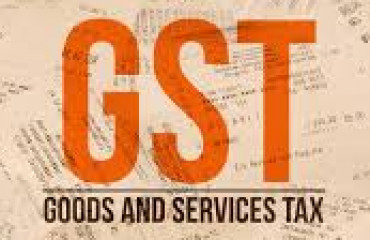
A proposal put forth by the Bureau of Energy Efficiency, which oversees the norms, outlined lenient emission reduction targets for cars weighing less than 909 kg. Most carmakers besides Maruti Suzuki and Toyota opposed this.
A proposal put forth by the Bureau of Energy Efficiency, which oversees the norms, outlined lenient emission reduction targets for cars weighing less than 909 kg. Most carmakers besides Maruti Suzuki and Toyota opposed this.
Mumbai: A simmering rift between India's top automakers over upcoming emission norms has burst into the open from behind closed doors. Tata Motors Passenger Vehicles Ltd on Friday publicly rejected calls for easing norms for small cars, directly countering market leader Maruti Suzuki India Ltd's long-standing demand for relaxed standards.
Shailesh Chandra, managing director of the Mumbai-based carmaker — and president of industry lobby Siam (Society of Indian Automobile Manufacturers) — said on the sidelines of the company's Q2 earnings that there was "no justification" for any relaxation in the next phase of emission norms for small cars.
He further warned that redefining small cars based on weight rather than the current classification based on length and engine size would incentivize unsafe designs.
"We do not support any move to include weight in the definition of small car. Such an arbitrary criteria would conflict with one of the country's most critical imperative that is safety," Tata Motors' Chandra said.
Maruti Suzuki Ltd, which is the undisputed market leader in lightweight cars, has been in support of a two-tier structure in the country's upcoming third installment of corporate average fuel efficiency (Cafe-3) norms.
A proposal put forth by the Bureau of Energy Efficiency, which oversees the norms, outlined lenient emission reduction targets for cars weighing less than 909 kg. Most carmakers besides Maruti Suzuki and Toyota opposed this.
No car weighing less than 909 kg meets BNCAP safety ratings today, Chandra said. BNCAP, or Bharat New Car Safety Assessment Program, assigns star-based safety ratings to cars based on their performance in crash tests. The scale runs between zero and five, with five stars denoting the safest cars.
"Encouraging lighter vehicles would undermine the significant progress the industry has made in improving safety standards and protection," Chandra said.
While Chandra dismisses any relief for small cars, Maruti has expressed its concerns during discussions with the government and industry that the Cafe-3 norms could threaten the very existence of small cars as the targets become more stringent for such cars than for larger cars.
The company has also argued that the 3g relief given to small cars in final calculation of total emissions will not amount to much as 20g relief is needed.
While Chandra did not directly name Maruti, his comments come just days after R.C. Bhargava, the chairman of Maruti Suzuki, said that the current emission norms discriminated against smaller cars and favoured bigger cars.
Last month, Maruti Suzuki's managing director Hisashi Takeuchi wrote a letter to Chandra seeking his support for the proposal which could make the small cars more affordable for those looking to upgrade from two-wheelers. He invoked the spirit of late icons Ratan Tata and Osamu Suzuki in this letter, Mint reported last Friday.
In his letter to Chandra, Takeuchi said that stringency of Cafe norms would mean that smaller cars could be discontinued in future as the efforts of company's designers would not amount to much in reducing emissions of small cars as norms keep getting stringent every year.
"Would this be a good step for our society and economy?" Takeuchi asked Chandra in his letter.
Chandra, however, disputed Maruti's key argument that such an exception will help make small cars cheaper for two-wheeler users to upgrade to. He said there were cars in the market weighing around 909 kg and costing as much as ₹10 lakh. Lowering emission norms for lighter cars would lead to concessions for these cars, too.
The newly revised goods and services tax (GST) rates, which have cut the levy on cars shorter than four metres in length and smaller engines, reinforced the definition of small cars based on length rather than weight, Chandra added. The smaller cars attract 18% GST while larger ones are now taxed at 40%.
